
Al Balad: The Historic Heart of Jeddah
Al Balad, the historic district of Jeddah, is a captivating blend of history, culture, and architecture. Established in the 7th century, this UNESCO World Heritage site offers a glimpse into the rich past of Saudi Arabia. As you stroll through its narrow alleys, you'll encounter traditional Hijazi buildings with distinctive wooden balconies, intricately designed doors, and coral-stone walls. The vibrant souks, or markets, are a sensory delight, brimming with spices, textiles, and traditional crafts. One of the highlights of Al Balad is the Naseef House, a beautifully restored mansion that once belonged to a prominent merchant family. This historic house now serves as a cultural center, showcasing artifacts and photographs that tell the story of Jeddah's evolution. Another must-visit is the Al Shafei Mosque, one of the oldest mosques in the region, with its stunning minaret and serene courtyard. Al Balad is not just about history; it's a living, breathing neighborhood where the old seamlessly blends with the new. Modern cafes and restaurants are interspersed with traditional teahouses, offering a unique culinary experience. As the sun sets, the district comes alive with lights, music, and the chatter of locals and tourists alike. Whether you're a history buff, a culture enthusiast, or simply looking to immerse yourself in the local atmosphere, Al Balad promises an unforgettable experience.
Local tips in Al Balad
- Visit early in the morning or late afternoon to avoid the midday heat.
- Wear comfortable shoes as the streets are cobbled and can be uneven.
- Take a guided tour to fully appreciate the historical significance of the area.
- Try local snacks from street vendors for an authentic taste of Jeddah.
- Respect local customs and dress modestly while exploring the district.
Al Balad: The Historic Heart of Jeddah
Al Balad, the historic district of Jeddah, is a captivating blend of history, culture, and architecture. Established in the 7th century, this UNESCO World Heritage site offers a glimpse into the rich past of Saudi Arabia. As you stroll through its narrow alleys, you'll encounter traditional Hijazi buildings with distinctive wooden balconies, intricately designed doors, and coral-stone walls. The vibrant souks, or markets, are a sensory delight, brimming with spices, textiles, and traditional crafts. One of the highlights of Al Balad is the Naseef House, a beautifully restored mansion that once belonged to a prominent merchant family. This historic house now serves as a cultural center, showcasing artifacts and photographs that tell the story of Jeddah's evolution. Another must-visit is the Al Shafei Mosque, one of the oldest mosques in the region, with its stunning minaret and serene courtyard. Al Balad is not just about history; it's a living, breathing neighborhood where the old seamlessly blends with the new. Modern cafes and restaurants are interspersed with traditional teahouses, offering a unique culinary experience. As the sun sets, the district comes alive with lights, music, and the chatter of locals and tourists alike. Whether you're a history buff, a culture enthusiast, or simply looking to immerse yourself in the local atmosphere, Al Balad promises an unforgettable experience.
Iconic landmarks you can’t miss
Bab Sharif Gate
Discover the historical allure of Bab Sharif Gate in Jeddah, a gateway to the city's rich culture and vibrant heritage.
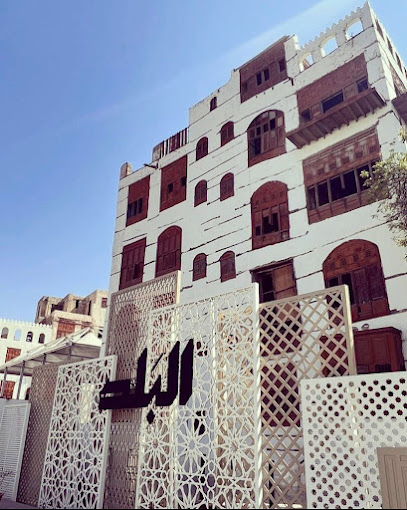
Bab Makkah Jeddah
Explore Bab Makkah, a historical gem in Jeddah, showcasing stunning architecture and rich cultural heritage in the heart of the old city.
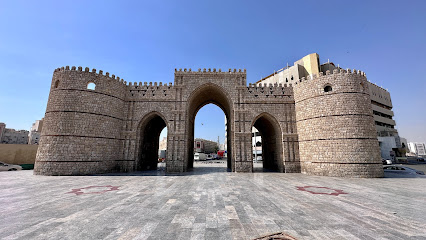
Old Jeddah, Al Balad
Explore Old Jeddah, Al Balad - a UNESCO World Heritage site brimming with history, culture, and stunning architecture, perfect for every traveler.
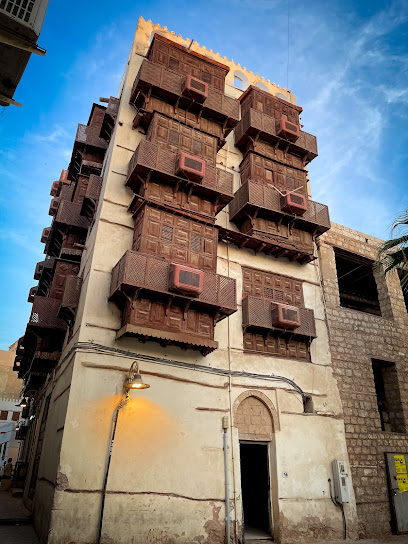
Jeddah Old Gate
Discover the historical richness of Jeddah Old Gate, a UNESCO World Heritage Site that blends tradition with culture in the heart of Saudi Arabia.
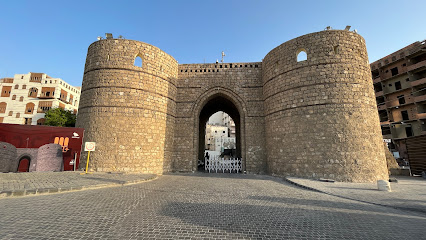
Bait Al Balad
Explore the cultural heritage of Jeddah at Bait Al Balad, a local history museum showcasing the city's rich past and vibrant traditions.
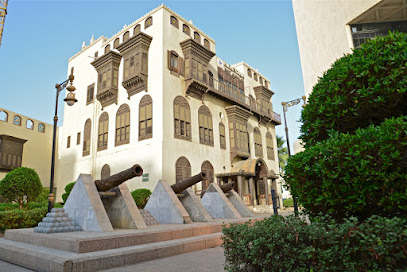
Historic District
Discover Jeddah's Historic District, a UNESCO World Heritage Site filled with stunning architecture, vibrant markets, and rich cultural heritage.
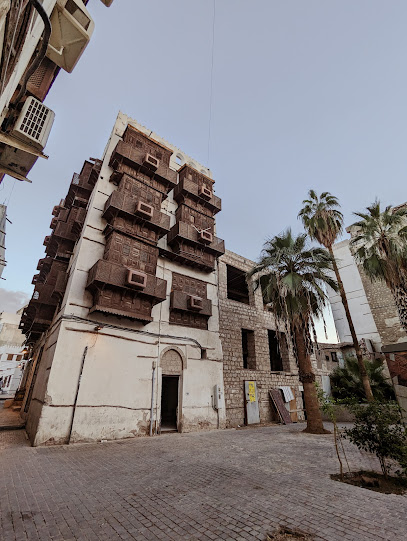
Bab Alfurdhah
Explore the historical significance of Bab Alfurdhah, a captivating gateway in Jeddah's Al-Balad, rich in culture and architectural beauty.
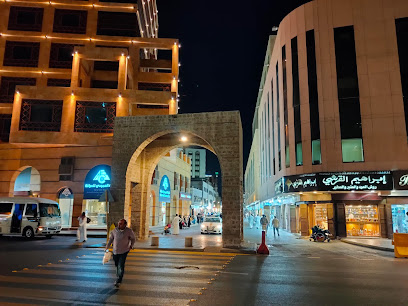
جدة - حي البلد
Discover Al-Balad, Jeddah: A UNESCO World Heritage site rich in history, culture, and vibrant markets that encapsulate the essence of Saudi Arabia.
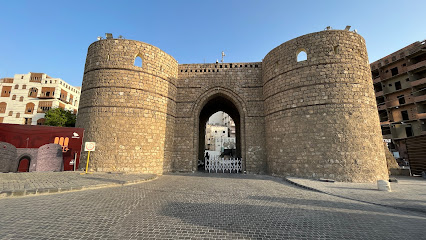
Old Town in Jeddah
Explore Old Town Jeddah, a UNESCO World Heritage Site, where history, culture, and stunning architecture await every traveler.
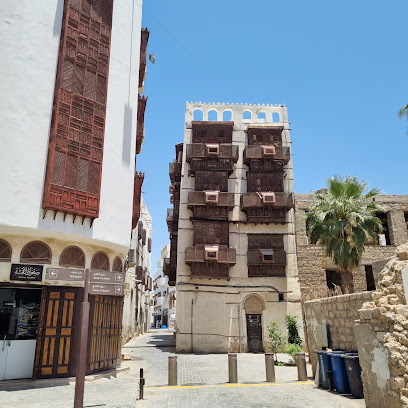
El Balad - Historical Jeddah جدة التاريخيه البلد
Explore El Balad, the historic heart of Jeddah, where ancient architecture meets vibrant culture in a UNESCO World Heritage site.
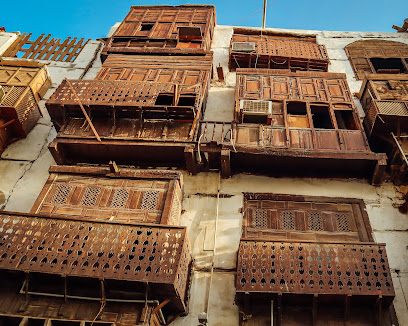
Unmissable attractions to see
Allegiance Square
Explore Allegiance Square, a historical landmark in Jeddah's Al-Balad district, where culture and tradition come alive amidst stunning architecture.
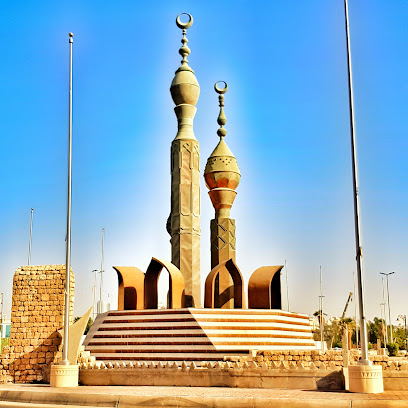
البلد
Explore the historic charm of Al-Balad in Jeddah, a UNESCO World Heritage site filled with vibrant markets and stunning architecture.
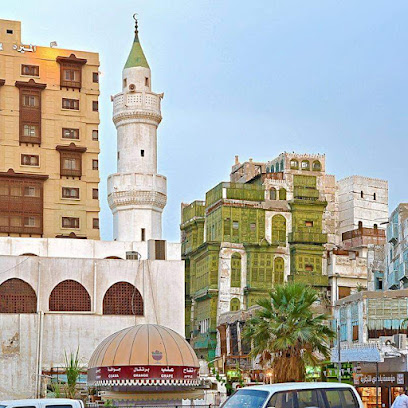
جدة - حي البلد
Explore Al-Balad, Jeddah's historic gem, where ancient architecture meets vibrant markets and rich culture in a captivating journey through time.
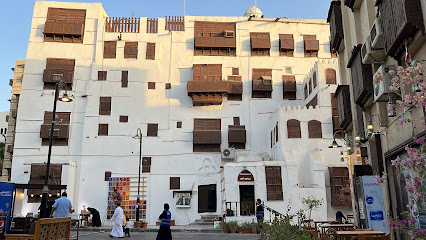
Cannon Obelisk
Explore the Cannon Obelisk in Al-Balad, Jeddah - a stunning historical landmark that showcases the city's rich culture and heritage.
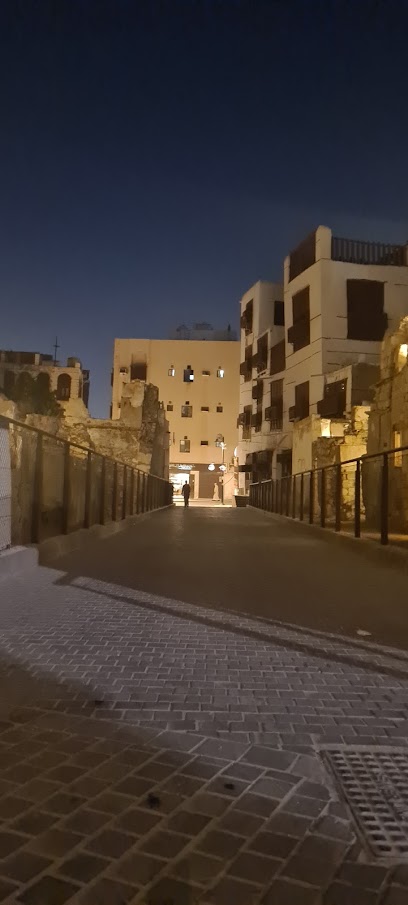
Remains of historical wall
Uncover the rich history of Jeddah at the Remains of the Historical Wall, a captivating glimpse into the city’s past amidst vibrant local culture.
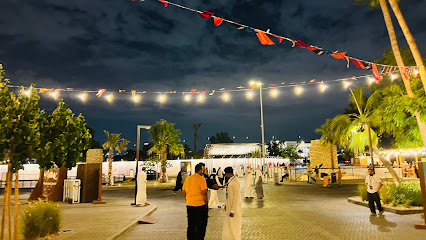
Essential places to dine
Holidays Restaurant
Experience authentic Indian cuisine at Holidays Restaurant in Jeddah's Al Balad District - A culinary journey awaits!
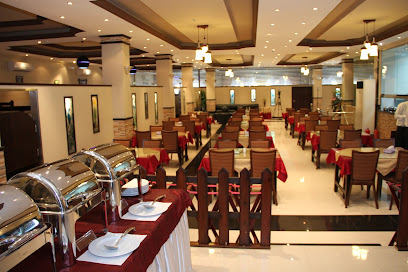
Cangkuang Resto & Cafe (Rasela)
Experience authentic Indonesian flavors at Cangkuang Resto & Cafe in Jeddah's historic Al-Balad district.
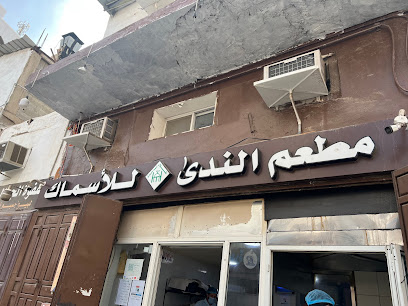
Albasali seafood restaurant
Discover the flavors of the Red Sea at Albasali Seafood Restaurant in Jeddah's historic Al-Balad district.
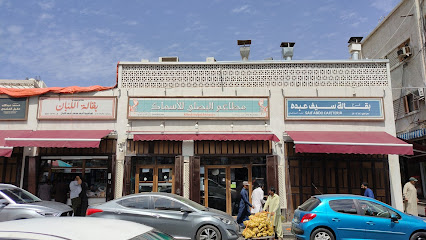
Garuda Restaurant
Experience authentic Indonesian cuisine in Jeddah's historic Al-Balad at Garuda Restaurant - a flavorful journey awaits!
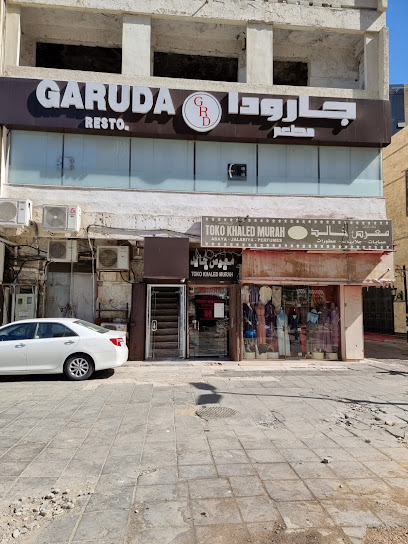
حمص وفول البلد
Experience authentic Western cuisine at حمص وفول البلد in Jeddah's historic Al-Balad district, where tradition meets flavor.
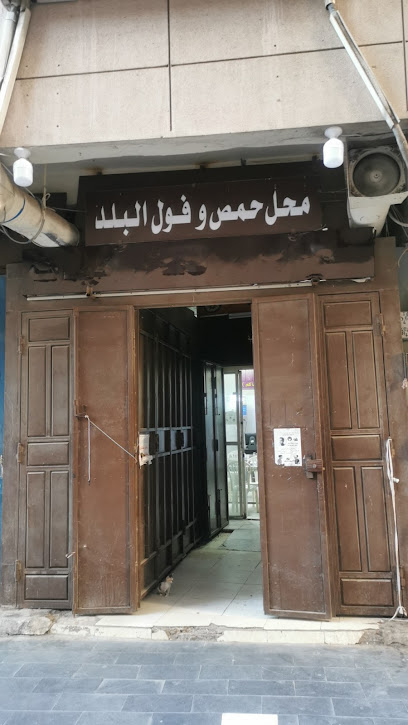
Oriental Restaurant (Thai Food)
Experience authentic Thai flavors at Oriental Restaurant in Jeddah's Al Balad District, where culinary tradition meets modern dining.
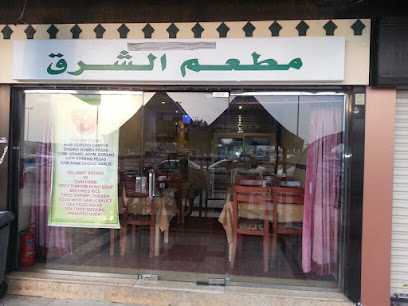
Sangeetha Restaurant
Experience the rich flavors of South India at Sangeetha Restaurant in Jeddah's historic Al Balad District.
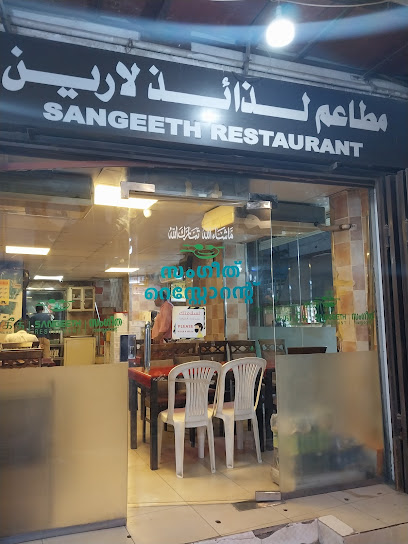
روس مندي باعشن
Experience the essence of Arabian cuisine at روس مندي باعشن in Jeddah's Al Balad District, where tradition meets flavor.
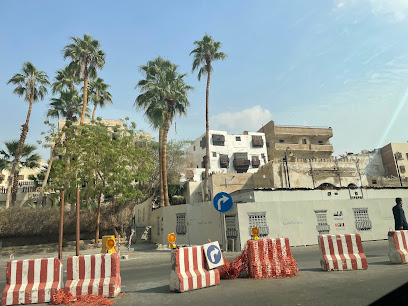
Cafe in al balad
Experience authentic Saudi culture at Café in Al Balad - where every cup tells a story amidst historic charm.
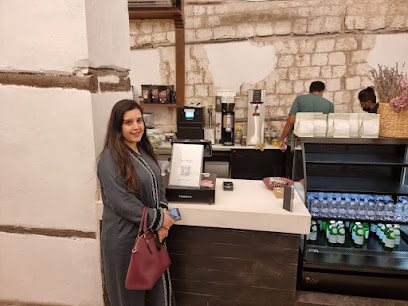
Traditional Tea Shop
Discover authentic Saudi flavors at Jeddah's Traditional Tea Shop—where every cup tells a story.
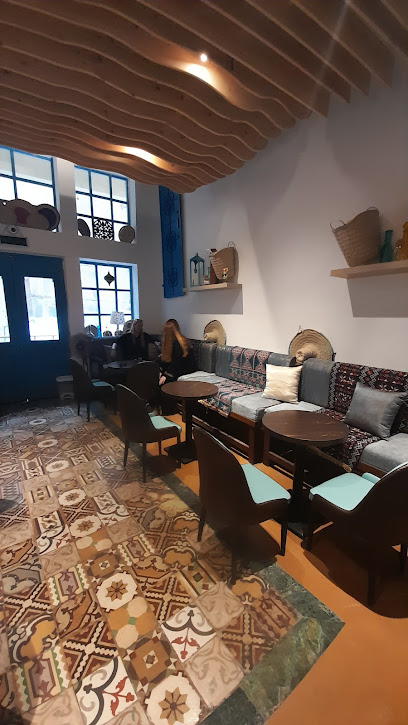
Markets, malls and hidden boutiques
Toko Ali Murah
Shop at Toko Ali Murah in Jeddah for a unique blend of local culture, diverse products, and a vibrant shopping atmosphere.
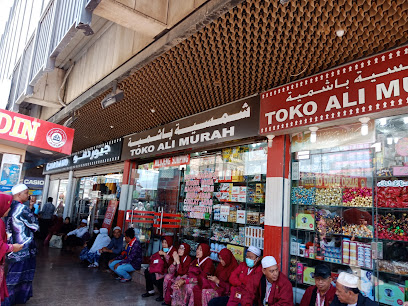
Jeddah Souvenir تذكار جدة
Discover authentic Saudi gifts and treasures at Jeddah Souvenir, where culture meets creativity in the heart of Al-Balad.
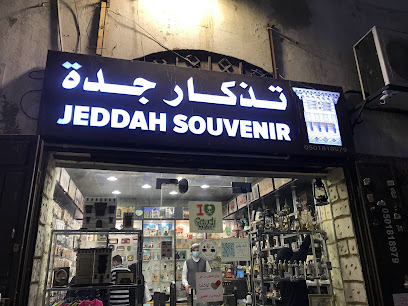
Al Balad jeddah
Discover the rich cultural heritage and vibrant markets of Al Balad, Jeddah's historic district, a UNESCO World Heritage site.
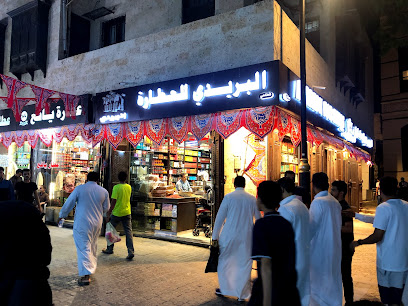
Al Balad Souvenir
Shop for unique handcrafted souvenirs in Jeddah's historic Al Balad District at Al Balad Souvenir, where culture and craftsmanship meet.
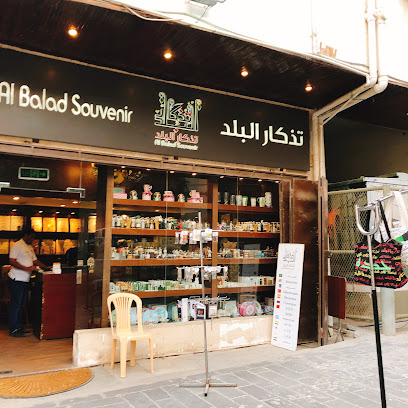
المتجر الوطني
Discover the National Store in Jeddah's Al-Balad district for a unique shopping experience and a taste of local culture.
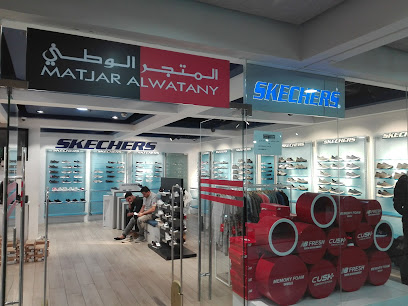
معرض الحسن. هدايا . العاب . خردوات
Discover unique gifts and toys at معـرض الحسن in Jeddah's historic Al Balad District, where local culture meets delightful shopping experiences.
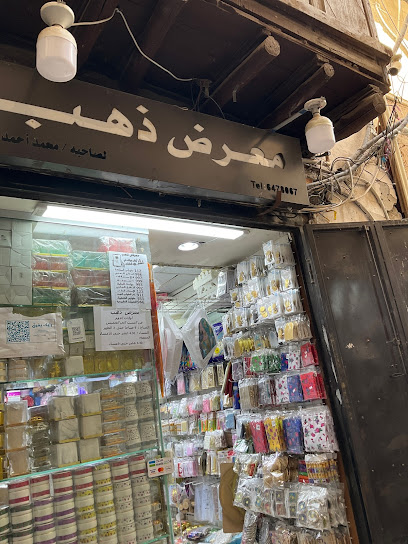
Afzal Shira أفضل شراء فرع الخاسكية
Explore the charm of Afzal Shira Gift Shop in Jeddah's Al-Balad, offering unique local souvenirs and handicrafts to take home.
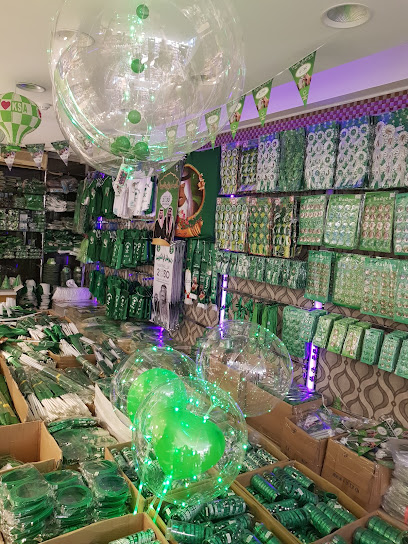
معرض ذهب
Explore معارض ذهب in Al-Balad, Jeddah: A treasure trove of handcrafted gifts and local artistry that captures the essence of Saudi culture.
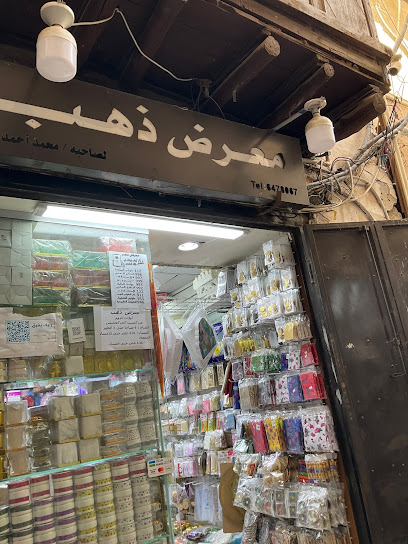
النهدى بناتي
Discover unique women's fashion at النهدى بناتي in Al-Balad, Jeddah, where tradition meets modern elegance for every style.
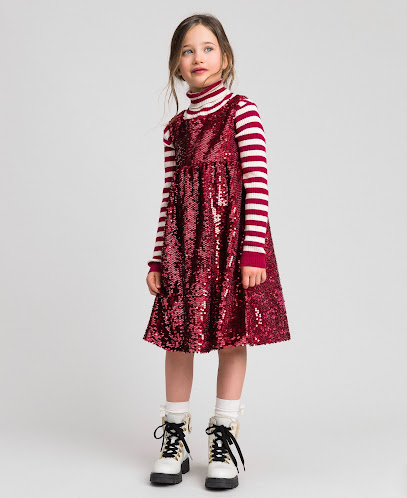
twelve١٩
Explore twelve١٩ in Jeddah's Al-Balad for authentic Saudi gifts, unique handicrafts, and a glimpse into the region's rich cultural heritage.
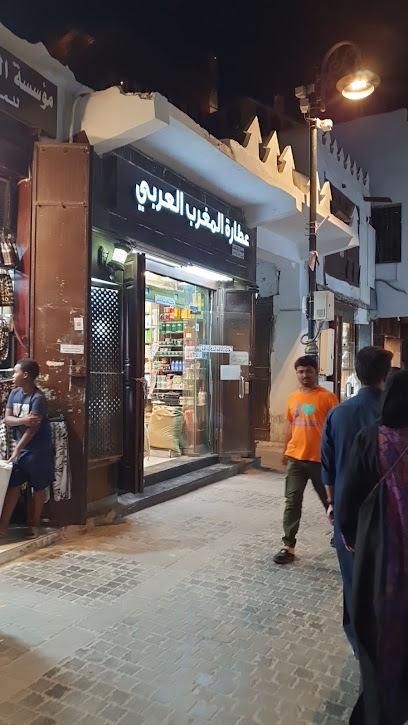
Essential bars & hidden hideouts
BAKSO MANG OEDIN
Experience authentic Indonesian flavors at Bakso Mang Oedin, a hidden gem in the heart of Jeddah's Al-Balad district, perfect for food lovers.
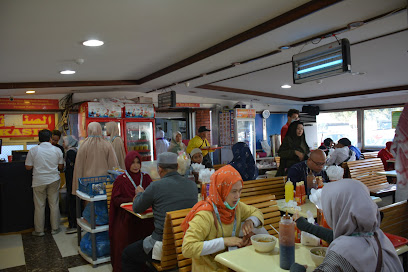
Cangkuang Resto & Cafe (Rasela)
Savor the rich flavors of Indonesia at Cangkuang Resto & Cafe, a culinary treasure in the heart of Jeddah's Al-Balad district.
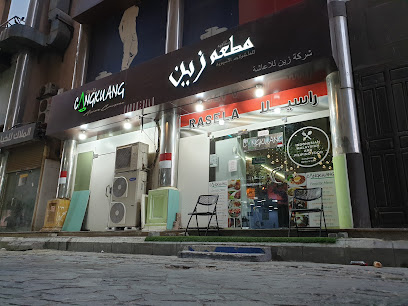
Jollibee
Discover the delicious flavors of Jollibee in Al-Balad, Jeddah, offering a unique Filipino fast food experience with every bite!
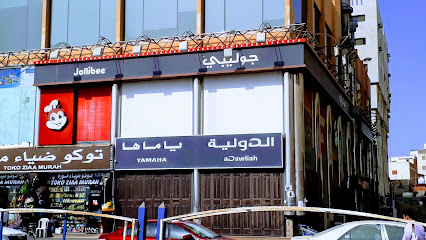
Garuda Restaurant
Discover the authentic flavors of Indonesia at Garuda Restaurant in Jeddah's historic Al-Balad, a culinary gem for every traveler.
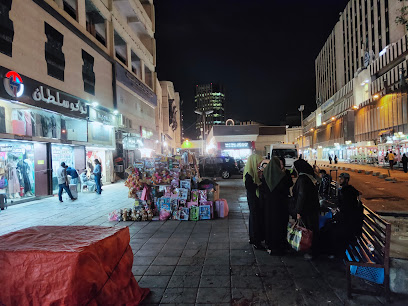
Oriental Restaurant (Thai Food)
Discover the rich flavors of Thailand at Oriental Restaurant in Jeddah's historic Al Balad District.
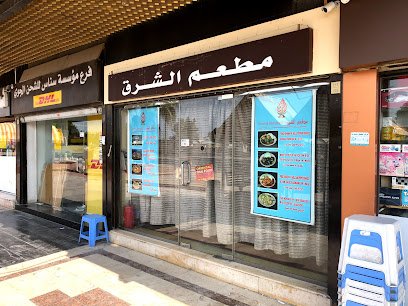
صاج الزقاقSAJALZOGAG
Experience the authentic flavors of Middle Eastern cuisine at Saj Al Zogag, a culinary gem in Jeddah's historic Al Balad District.
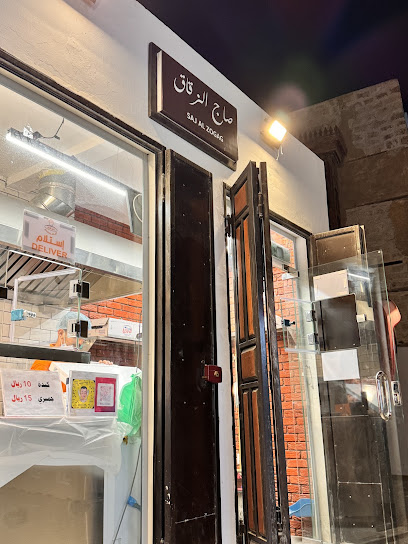
Cafe in al balad
Discover the rich flavors of Jeddah at this charming café in Al Balad, where tradition meets culinary delight.
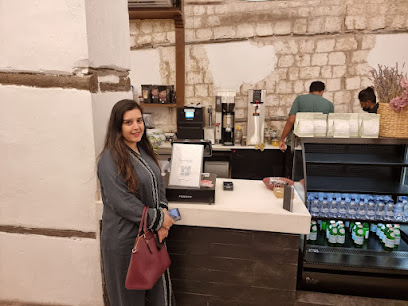
Traditional Tea Shop
Explore the essence of Arabian tea culture at Jeddah's Traditional Tea Shop, where every sip tells a story.
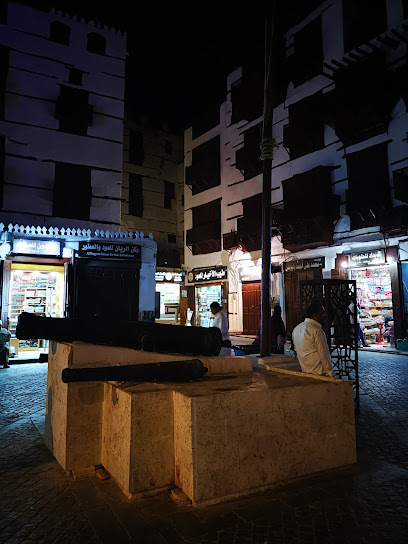
قطفة عنب ( الخدمة الذاتية)
Savor the rich flavors of Jeddah at قطفة عنب, an authentic self-service restaurant that embodies the spirit of Saudi cuisine.
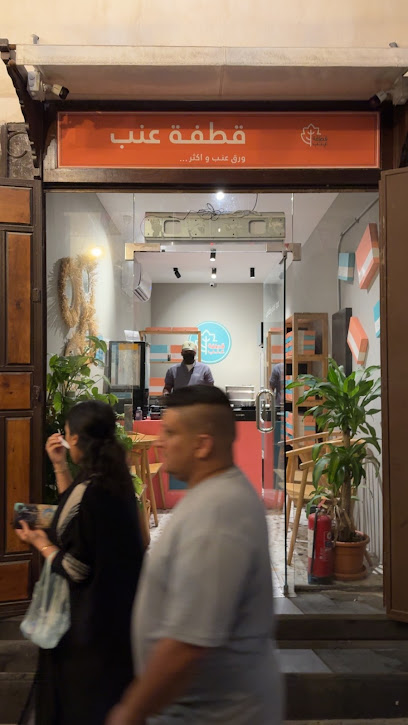
مطعم البركةبنغلي
Experience the authentic flavors of Saudi cuisine at مطعم البركة بنغلي, a culinary gem in the historic Al Balad District of Jeddah.
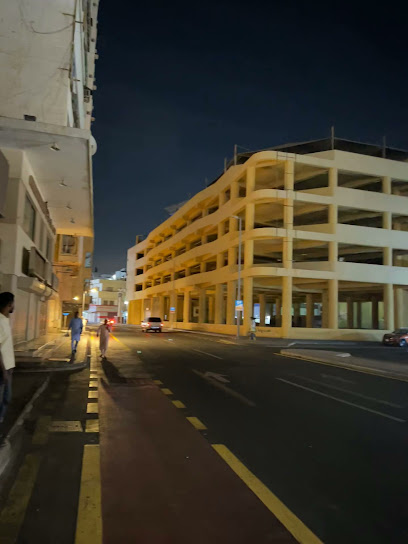
Local Phrases
-
- HelloMarhaba
[Mar-ha-ba] - GoodbyeMa'a as-salama
[Ma-a as-sa-la-ma] - YesNa'am
[Na-am] - NoLa
[La] - Please/You're welcomeMin fadlik
[Min fad-lik] - Thank youShukran
[Shuk-ran] - Excuse me/SorryAfwan
[Af-wan] - How are you?Kaif halak?
[Kaif ha-lak] - Fine. And you?Bikhair. Wa ant?
[Bi-khair. Wa ant?] - Do you speak English?Hal tatakallam al-ingliziya?
[Hal ta-takal-lam al-ing-li-zi-ya] - I don't understandAna la afham
[An-a la af-ham]
- HelloMarhaba
-
- I'd like to see the menu, pleaseUriid an ara al-qima, min fadlik
[Ur-iid an a-ra al-ki-ma, min fad-lik] - I don't eat meatAna la akul al lahman
[An-a la a-kul al la-ham] - Cheers!Fi sahetak!
[Fi sa-he-tak] - I would like to pay, pleaseUriid an adfa, min fadlik
[Ur-iid an ad-fa, min fad-lik]
- I'd like to see the menu, pleaseUriid an ara al-qima, min fadlik
-
- Help!Musaidah!
[Mu-sai-dah] - Go away!Ijai!
[I-ja-i] - Call the Police!Id'uh al-shurta!
[Id-uh al-shur-ta] - Call a doctor!Id'uh tabib!
[Id-uh ta-bib] - I'm lostDa'ayt
[Da-ayt] - I'm illAna mareed
[An-a ma-reed]
- Help!Musaidah!
-
- I'd like to buy...Uriid an ashtar...
[Ur-iid an ash-tar] - I'm just lookingAna fii al-nathar faqat
[An-a fii al-na-thar fa-qat] - How much is it?Kam thamanuh?
[Kam tha-ma-nuh] - That's too expensiveHatha ghali jiddan
[Ha-tha gha-li jid-dan] - Can you lower the price?Hal tastatiu tanzil al-si'ar?
[Hal tas-ta-ti-u tan-zil al-si-ar]
- I'd like to buy...Uriid an ashtar...
-
- What time is it?Kam al-sa'ah?
[Kam al-sa-ah] - It's one o'clockAlwaheedah
[Al-wa-hee-dah] - Half past (10)Nisf al-asharah
[Nisf al-a-sha-rah] - MorningSabaah
[Sa-baah] - AfternoonDhuhr
[Dhu-hr] - EveningMasaa
[Ma-saa] - YesterdayAms
[Ams] - TodayAl-yawm
[Al-yawm] - TomorrowGhadan
[Gha-dan] - 1Wahed
[Wa-hed] - 2Ithnayn
[Ith-nayn] - 3Thalatha
[Tha-la-tha] - 4Arba'a
[Ar-ba-a] - 5Khamsa
[Kham-sa] - 6Sitta
[Sit-ta] - 7Saba'a
[Sab-a-a] - 8Thamania
[Tha-ma-ni-a] - 9Tis'a
[Tis-a] - 10Ashara
[A-sha-ra]
- What time is it?Kam al-sa'ah?
-
- Where's a/the...?Ayna...
[Ay-na] - What's the address?Ma huwa al-alamat?
[Ma hu-wa al-a-la-mat] - Can you show me (on the map)?Hal tastatiu an turini (ala al-kharita)?
[Hal tas-ta-ti-u an tu-ri-ni (ala al-kha-ri-ta)] - When's the next (bus)?Mata sa yakunu al-autobis al-qadim?
[Ma-ta sa ya-ku-nu al-au-to-bis al-qa-dim] - A ticket (to ....)Takat (ila ....)
[Ta-kat (i-la)]
- Where's a/the...?Ayna...
History of Al Balad
-
Al Balad, the historic district of Jeddah, was established in the 7th century and served as a crucial port for maritime trade routes connecting the Arabian Peninsula to the rest of the world. Its strategic location along the Red Sea facilitated trade with East Africa, India, and beyond, making it a bustling hub for merchants and travelers.
-
Throughout the centuries, Al Balad became a melting pot of cultures, influenced by the various traders and pilgrims who passed through. The influx of diverse cultures contributed to the district's rich architectural heritage, characterized by coral-stone buildings, intricately carved wooden doors, and vibrant souks that reflect a blend of Islamic and local design elements.
-
During the 18th and 19th centuries, Al Balad flourished as a center of commerce, with wealthy merchants building grand houses known as 'bayt' that showcased their prosperity. This period saw the construction of notable landmarks such as the Naseef House and the Al Shafee Mosque, which served as symbols of the economic and cultural vitality of the area.
-
In 2014, Al Balad was designated as a UNESCO World Heritage Site, recognizing its historical significance and the need for preservation. This acknowledgment has led to revitalization efforts aimed at restoring its unique architectural features and enhancing its cultural heritage, ensuring that Al Balad remains a vibrant part of Jeddah's identity.
-
In recent years, Al Balad has witnessed a resurgence in interest as both a tourist destination and a cultural landmark. Efforts to preserve its historic sites and promote local art and crafts have transformed the area into a lively cultural center, attracting visitors eager to explore its rich history while enjoying contemporary Saudi Arabian culture.
Al Balad Essentials
-
Al Balad is centrally located in Jeddah and is easily accessible from various neighborhoods. If you're coming from the King Abdulaziz International Airport, you can take a taxi or ride-sharing service, which typically takes about 30 minutes. Local buses also connect to Al Balad from major areas like the Corniche and Al Faisaliyah. If you're near downtown Jeddah, walking is a viable option as Al Balad is only a few kilometers away.
-
Al Balad is best explored on foot due to its narrow streets and historical architecture. However, taxis and ride-sharing apps are available for longer distances or if you prefer not to walk. There is no train service within Al Balad, but local buses can take you to nearby neighborhoods. Bicycles are not commonly used, but the area is pedestrian-friendly, making it easy to explore local sights.
-
Al Balad is generally safe for tourists, but standard precautions should be taken. Avoid walking alone at night in less populated areas. While violent crime is rare, petty theft can occur, especially in crowded markets. Be particularly cautious around the old souks, where pickpocketing is more likely. Always keep your belongings secure and be aware of your surroundings.
-
In case of emergency, dial 999 for police assistance and 997 for ambulance services. The local hospitals, such as King Fahd Hospital, are equipped to handle emergencies. Always carry a copy of your passport and travel insurance information. Pharmacies are available throughout Al Balad for minor health issues, and many staff speak English.
-
Fashion: Do dress modestly; women should wear abayas and men should avoid shorts in public. Religion: Do respect local customs; when visiting mosques, men and women must cover their heads and wear long sleeves. Public Transport: Do give up your seat for elderly passengers and women. Don't eat or drink in public transport. Greetings: Do greet with a handshake, but avoid physical contact with the opposite gender unless initiated. Eating & Drinking: Do try local dishes from street vendors. Don't eat or drink in public during Ramadan and be respectful of local dining customs.
-
To experience Al Balad like a local, visit the bustling souks, such as Souk Al Alawi, for authentic goods and spices. Engage with local shopkeepers, who are often eager to share stories about the history and culture of the area. Try traditional foods like 'foul' and 'sharbat', and don’t miss the chance to enjoy a cup of Arabic coffee in one of the local cafes. Visiting during the evening offers a vibrant atmosphere as the streets come alive with lights and sounds.
Nearby Cities to Al Balad
-
Things To Do in Mecca
-
Things To Do in Taif
-
Things To Do in Al Baha
-
Things To Do in Yanbu
-
Things To Do in Medina
-
Things To Do in Abha
-
Things To Do in Khamis Mushait
-
Things To Do in Al Ula
-
Things To Do in Marsa Alam
-
Things To Do in Jizan
-
Things To Do in Keren
-
Things To Do in Asmara
-
Things To Do in Najran
-
Things To Do in Aswan
-
Things To Do in Dekemhare








